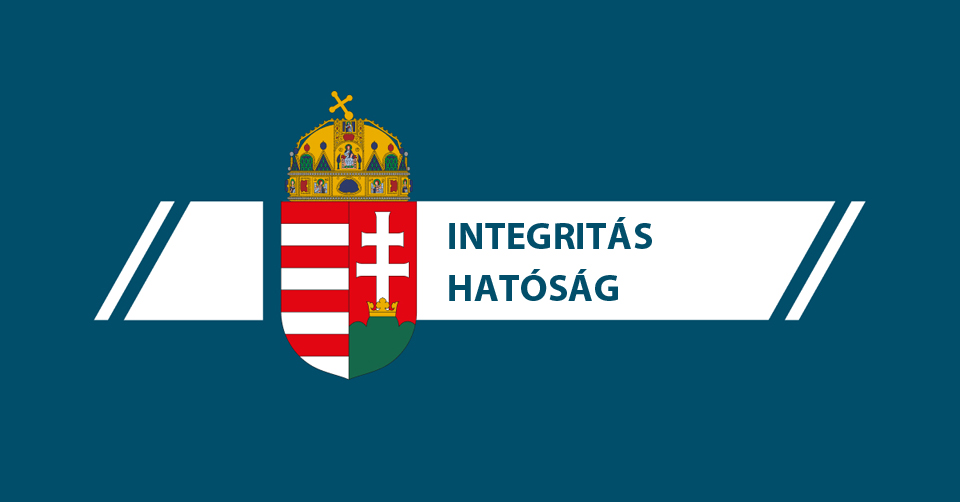The https://english.atlatszo.hu use cookies to track and profile customers such as action tags and pixel tracking on our website to assist our marketing. On our website we use technical, analytical, marketing and preference cookies. These are necessary for our site to work properly and to give us inforamation about how our site is used. See Cookies Policy
Civilian member of the Anti-Corruption Working Group resigns over secrecy surrounding anti-corruption strategy
“Currently, Hungary does not have an anti-corruption strategy, and while the Working Group has been given the opportunity to comment on the new draft strategy, I do not believe that this narrow consultation process is a substitute for consultation with a wider range of professional, business, and social actors. The comments of the civil society members of the Task Force are currently not public, just as the government does not plan to publish the draft strategy for public consultation before its adoption by the Government in June. This makes the implementation of any strategy impossible. And in the case of an anti-corruption strategy, it is worrying because it will not improve transparency in the business, civil and public sectors, the efficiency with which our tax money is spent, or widen the pool of public institutions, politicians, businesses and citizens who are looking out for the public good, who operate, do business and pay the gas fitter with integrity.”
This is how Petra Reszkető, Director of Budapest Institute, one of the NGO members of the Anti-Corruption Working Group, which is working alongside the Integrity Authority and includes ten governmental and ten non-governmental experts, explains her withdrawal from the group’s activities. Reszkető is the third of the ten unpaid non-governmental members who saw no point in continuing their voluntary involvement. The two others who left, Krisztián Fonyódi and Zsombor Essősy, did not publicly explain their resignation.

The immediate cause of Petra Reszkető’s resignation was the controversy surrounding the review process of the National Anti-Corruption Strategy in the Anti-Corruption Working Group. At the end of March, the Integrity Authority sent the working group the draft of the “Medium-Term National Anti-Corruption Strategy 2023-2025” and the action plan for its implementation to review: the government pedged to involve the working group in the conditionality procedure.
According to an assessment by non-governmental organisations (Amnesty International Hungary, the Eötvös Károly Institute, the Hungarian Helsinki Committee, K-Monitor, the Hungarian Civil Liberties Union, and Transparency International Hungary), the government has not yet met most of the conditions required to access the frozen EU funds. The government has not taken sufficient steps to fully address the rule of law and human rights concerns identified by the EU: a number of issues related to the anti-corruption framework, the independence of the judiciary, the legislative process, the rights of refugees and asylum seekers, academic autonomy and the rights of LGBTQI+ people remain unresolved, including commitments on the National Anti-Corruption Strategy.
In the request for comments on the draft strategy, the president of the Integrity Authority told the Working Group that “in order to enable the Working Group members to vote on the comments and recommendations on the Strategy at the end of April, we believe that a document containing these should be prepared by 25 April”.
Átlátszó has also commented on the draft National Anti-Corruption Strategy 2023-2025, which, in general, lacks tools to deal effectively with corruption situations, apart from outlining a few measures. Existing and planned anti-corruption measures are largely limited to the regulatory and documentary level and the adoption of the new strategy would not represent a substantial improvement in this respect. The document also fails to propose any substantive solutions to, among other things, the fact that, with few exceptions, public bodies obstruct access to public data, they are not open to meaningful dialogue and cooperation with non-governmental actors, and that the pro-government press regularly conducts smear campaigns against NGOs involved in exposing corruption.
However, it turned out at the 27 April meeting that the members of the working group delegated by governmental organisations had not prepared any comments on the draft by the deadline, and the opinion of the NGO members was not to be sent to the government as a working group position, even if it was explicitly stated that it was prepared by the non-governmental actors.
Instead, the state delegates decided to comment on the civilian opinions received on the draft strategy, while no formal vote on these opinions was taken.
Some NGO members expressed their confusion at the meeting and afterward: they said they understand that the state delegates do not comment on the draft the state prepared, but in this case, it would be logical to present a summary of the NGO opinions as the working group’s position to the government. The state delegates refused to do so and asked for a further month to review the position of the NGOs.
Not all civil society members voted for the adoption of the first report of the Anti-Corruption Working Group – English
The delegates of Transparency International Hungary, K-Monitor and Átlátszó voted no, and two other civil society members abstained from Monday’s vote on the first annual report of the Anti-Corruption Working Group established under the Integrity Authority.
It was also revealed at the April meeting that the draft strategy is not intended to be made public and subject to wider public consultation before final adoption, but “the opinion of the working group is considered as a public consultation”.
In other words, the opinion where the views of the civil society members, which were ready by the deadline, are now being overruled by the state members beyond the deadline.
“The end result will be that the Working Group will send comments on the national anti-corruption strategy to the government at a time when they will no longer make sense, because the process of drafting the strategy will be over by then”, wrote Miklós Ligeti, legal director of Transparency International Hungary, on the working group’s mailing list after the meeting.
The delegate from Atlatszo wrote the next day on the working group’s email list that “I would like to point out here that I do not feel that the civil delegates are representative of anyone beyond themselves or the delegating organisations, so asking for our opinion cannot be considered as a public consultation”.
Atlatszo selected to participate in the newly established Integrity Authority’s anti-corruption working group – English
The Integrity Authority was not set up voluntarily by the Hungarian government, but it was forced to do so by the European Union: this was one of 17 commitments to fight corruption and waste of public money that the European Commission made conditional on Hungary continuing to receive EU funds.
This was presumably the last straw for Petra Reszkető, who, in her open letter announcing her resignation, also complained about the lack of public consultation on the strategy. The Integrity Authority has launched a new call for applications to fill the places of the resigned NGO members of the working group.
Translated by Zita Szopkó. The original, more detailed Hungarian version of this story was written by Tamás Bodoky and can be found here.

